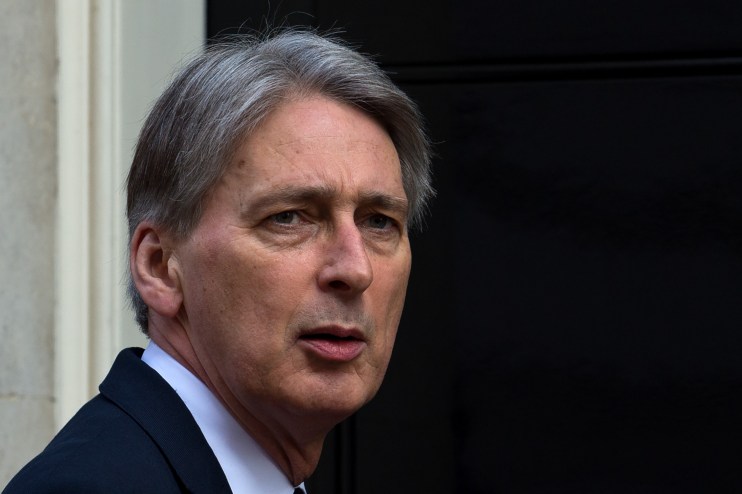Philip Hammond: Post-Brexit trade deals have ‘very limited economic value’

Philip Hammond has taken a swipe and Brexit supporters’ hopes of striking free-trade deals around the globe after leaving the EU because they have “very limited” economic value.
The former chancellor said there is no “simple solution” to Brexit, and called a no-deal scenario an act of “self-harm”.
Read more: Bercow discussed Brexit plans with European Parliament head
Instead, the former Tory MP who lost the party whip when he backed the Benn Act last month, said a zero-tariff trade deal with the EU was they way to go.
That would scrap the need for an Irish backstop, but would tie Britain to the bloc’s single market rules.
It would also mean Britain is on a “level playing field” with EU member states on social, environmental and state aid regulations.
However, British firms would benefit from low-friction regulatory borders and no customs barriers at Dover and Calais.
It would also give Parliament the option to walk away from the deal within a year via a break clause.
Northern Ireland would be subject to a separate backstop under the plan. That mirrors ideas put forward by the EU’s chief Brexit negotiator Michel Barnier last year.
He told the Telegraph: “This addresses the main criticism by the Brexiteers of the UK-wide backstop while being acceptable to the EU because Northern Ireland remains in the backstop, even if UK were to terminate.”
Setting a date for his deal to be approved at January 31, he added: “We can’t enter into this agreement until we leave.
“But there is no reason we can’t agree a detailed text now and sign it immediately when we leave.”
But if Brexit is extended beyond 31 October, Prime Minister Boris Johnson is likely to call an early General Election to boost his majority in the House of Commons.
Read more: Britain would now vote to stay in the EU, mega-poll reveals
This would make it easier to push his Brexit agenda through – something both he and his predecessor Theresa May have struggled with.
Addressing the issue, the former chancellor this morning told the BBC: “I don’t think an election solves our problem here.”